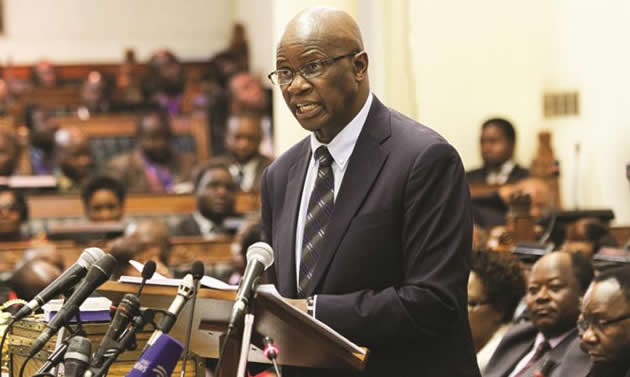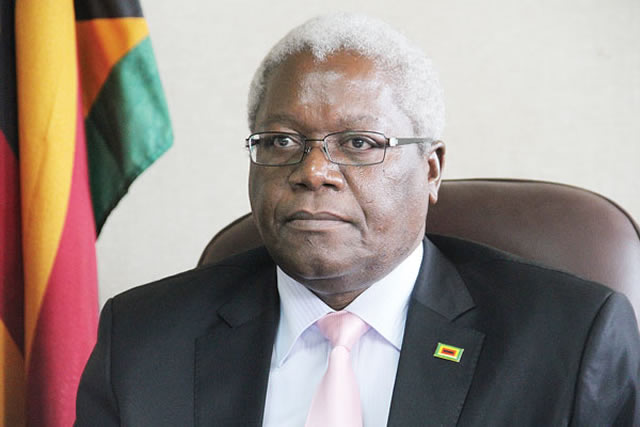Zim-Asset to boost or bust

My Turn with Tichaona Zindoga
MANY of us may have been at one point confronted with the “idiomatic antithesis” regarding some construct called “letter and spirit”, especially regarding Law.
To follow the letter of the law is to seek to advance its literal sense while the spirit is the intention of such law.
Thus one may argue that they are following the letter and be accused of violating the spirit or, conversely, interpreting what may be the intention but which fundamentally goes against the letter of the law.
Or something like that.
However, it is something else when one violates both the letter and spirit of any particular situation.
But the antithesis is not limited to law only.
It can be applied to any situation, rule and action intended to have certain outcomes.
Let us talk about Zim-Asset, the country’s economic blueprint.
The preamble, written by President Mugabe states that it is in “pursuit of a new trajectory of accelerated economic growth and wealth creation”.
“Zim-Asset was crafted to achieve sustainable development and social equity anchored on indigenisation, empowerment and employment creation which will be largely propelled by the judicious exploitation of the country’s abundant human and natural resources.”
The Vision of the Plan is “Towards an Empowered Society and a Growing Economy” and its mission is “To provide an enabling environment for sustainable economic empowerment and social transformation to the people of Zimbabwe”.
On the primary and indeed premier funding matrix, the preamble adds:
“Given the resource constraints, Government will come up with robust and prudent fiscal and monetary policy measures to buttress and boost the implementation of Zim-Asset. In order to ensure that the Plan is fully funded, the following, inter alia, have been identified as financing mechanisms: tax and non-tax revenue, leveraging resources, Sovereign Wealth Fund, issuance of bonds, accelerated implementation of Public Private Partnerships, securitisation of remittances, re-engagement with the international and multilateral finance institutions and other financing options, focusing on Brazil, Russia, India, China and South Africa (BRICS).”
Economy in the spotlight
Right now everybody’s attention is on the economy and the direction it is taking.
One may add that the attention is rather one of foreboding which foreboding has been accentuated by the veld fires of job losses.
Naturally, one turns to the Government’s economic blueprint, Zim-Asset to find out what is to be done, indeed can be conjured in such a necessary moment.
You guessed right: the current economic situation does not seem to go in sync with the letter and spirit of that noble document which was anchored on the winning manifesto of Zanu-PF, which even the opposition admitted had no reply to.
Job losses, as a pressing issue, are antithetical to Zim-Asset
The society is being disempowered and the economy is not growing while the trajectory the country is taking, at least for now, is not one of accelerated economic growth and wealth creation.
Many of these troubles are not new — in fact we have seen worse days — but what baffles the mind is why there is a precipitous sense of things going wrong.
It is certainly time to boost or bust Zim-Asset.
The more jobs are lost, the more the promise of the same in the document and last election become ever so demanding.
Even some people who did not believe in the promise of Zim-Asset (read the Zanu-PF winning manifesto) are cynically demanding the jobs.
People want to move in a direction that is certainly not down the 1992 road of esap or some road whose name is spelt in Greek, which is remarkably difficult for anyone.
With Zim-Asset’s race coming to an end in the not so distant future, people expect that the final laps will be better, which is measured by the deliverables outlined in the document and couched in the spirit of socio-economic transformation.
Transformation is change for the better.
Perhaps transfiguration would even be best. Deterioration is the antithesis of transformation, in the positive way that we understand it.
Nobody wants this country to deteriorate.
To what end?
Focus on Chinamasa and co
Finance and Economic Development Minister Patrick Chinamasa, being the man associated with money and the national purse, is the man of reckoning on Zim-Asset and other macro-economic matters.
We are all looking up to him, never mind that everyone in the Government is supposed to play a part.
And people will be asking questions, as well, with the most important being, “Is he following the letter and spirit of Zim-Asset, which should bring an ‘empowered society and a growing economy’?”
One has to be sure he is working towards that, not least because that is what he was appointed to do.
No one would sleep at home while deliberately flouting his job’s terms of reference.
But is Minister Chinamasa following the letter of Zanu-PF’s winning formula, first by anchoring his implementation “on indigenisation, empowerment and employment creation . . . largely propelled by the judicious exploitation of the country’s abundant human and natural resources”?
This is primary.
However, it will be sad to note that in the past two years, exploitation of the “country’s abundant human and natural resources” has drastically gone down.
While the human resources are now being exploited in the negative sense impinging on the idea of social equity, mining and agricultural sectors are not performing and somehow they are not being mentioned.
It would seem the “robust and prudent fiscal and monetary policy measures” that Minister Chinamasa have in mind only relate to austerity measures that are cheered on by the IMF, which, ironically have the effect of undermining social transformation.
Well, if his latest budget and other pronouncements are anything to go by, he is doing well in terms of tax and non-tax revenues, being demanded by Zim-Asset.
But how about “leveraging resources, Sovereign Wealth Fund, issuance of bonds, accelerated implementation of Public Private Partnerships, securitisation of remittances, re-engagement with the international and multilateral finance institutions and other financing options, FOCUSING (emphasis mine) on Brazil, Russia, India, China and South Africa (BRICS)”?
Minister Chinamasa has hardly turned to these latter countries, in his seemingly headfirst love with the Bretton Woods institutions.
There is no need to be alarmist about it, but the country is moving in the trajectory that is at a tangent with Zim-Asset.
And that has to be rectified soonest.
The choice is to boost or bust our Zim-Asset altogether.










Comments